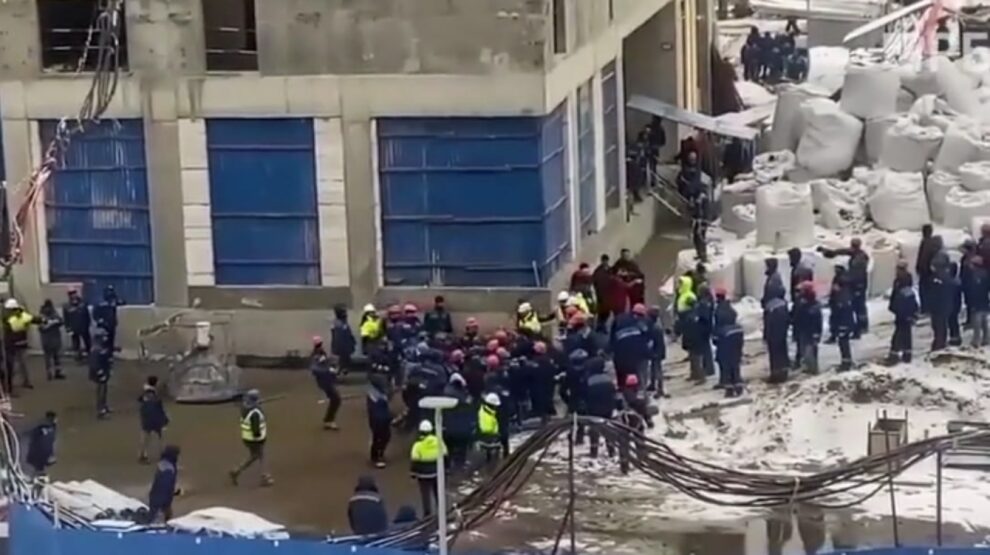Two minutes to consider one case: that’s exactly how long it took a court in Moscow to decide to expel more than fifty migrants from Uzbekistan and Tajikistan from the country. In 100 minutes, 50 verdicts were rendered. Several migrants are trying to appeal the court’s decision, but the chances of their appeals being upheld are not very high.
A month and a half ago, 55 migrants from Uzbekistan and Tajikistan were detained in the town of Mytishchi near Moscow. Most of them worked in Russia without a patent. For this, the court decided to expel everyone from the country with a ban on entry for a period of five years.
According to migrants and their lawyers, the trial in their cases proceeded surprisingly quickly: the judge spent only a couple of minutes on each case and issued a verdict. He did not listen to the defense arguments.
“At first they brought 20–25 people into the hall. Each of them didn’t sit for three minutes: he took them out, and then they let us in, also about 20 people,” says Abdurashid, a migrant from Tajikistan. “They asked: “Do you have relatives in Russia?” Are you married in Russia?” We said no. Then they sent us back.”
Lawyers emphasize that violations of their rights were committed both at the police station where the migrants were taken after detention, and later in court proceedings. The migrants themselves say that they did not understand the contents of the documents they signed. They were also forced to sign a waiver for a lawyer and a translator.
“I don’t know the Russian language very well. The man called everyone in turn and said: “Sign these papers.” They were in Russian. We signed one by one,” says a migrant from Uzbekistan.
“After we were taken to the police station, we stayed there for two days. There they gave us 20-30 pieces of paper, marked the places and said: “Sign here,” says Okhun, a migrant from Tajikistan. “If you ask what it is, doesn’t answer, says: “Sign it, that’s all.”
Five migrants have decided to appeal the court’s decision and hope, with the help of lawyers, to have the court’s decision reviewed. According to lawyer Naimzhon Davlyatov, the fact that the men were forced to sign documents the contents of which they did not understand is an obvious violation. The lawyer notes that in court the migrants should have been explained their rights to an interpreter and protection. They should also have been told what objections and wishes they could express.
“When they came to the police station, their phones were taken away. They were deprived of the right to contact a lawyer and the opportunity to report anything,” Naimzhon Davlyatov lists the violations. “Also, the judge did not delve into the essence of the cases and, in fact, made decisions automatically. The judge must spend at least 15 minutes on each case.”
Lawyers emphasize that some of the detained migrants had labor patents issued in Moscow. However, according to Russian migration legislation, a patent obtained in the capital does not give a foreign citizen the right to work in the neighboring Moscow region, where they were detained.
Several convicts emphasize that they arrived in Russia quite recently, and they simply did not have enough time to collect a full package of migration documents.
“There is no difference, no matter what crime a foreign citizen commits: his rights must be protected by law,” notes lawyer Shukhrat Makhmudov. “And the fact that he does not have a patent or works under a patent from another city does not mean that his rights can be violated.”
So far, the appeal court has sent the migrants’ case for a new trial. If during the trial the facts of violation of the rights of foreign citizens are confirmed, then the decision of the court of first instance may be canceled.
Source: Ozodi















